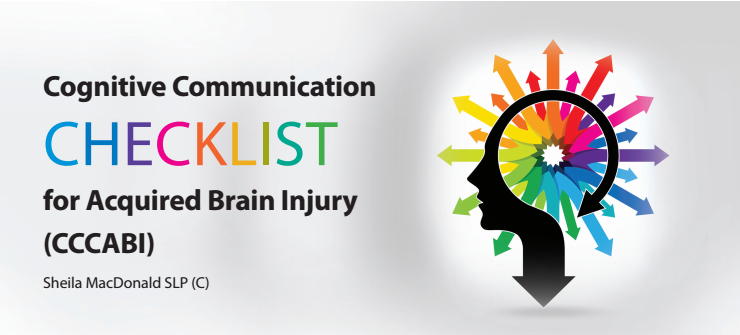
Communication impairments are common after brain injury with incidence rates higher than 75%. Most often these are cognitive-communication deficits that result from underlying cognitive or thinking difficulties (e.g. attention, memory, reasoning). After a brain injury, communication difficulties can be difficult to detect and describe. Many people find that others think they are “fine” because their speech sounds clear. The CCCABI is a referral tool designed to help identify communication difficulties after brain injury that require referral to a speech-language pathologist (speech therapist).
The CCCABI was designed for four reasons:
- To help people with brain injuries and their families to describe some of the difficulties they are experiencing.
- To help healthcare professionals detect communication difficulties more consistently.
- To help administrators, program leaders, and funding sources to understand the effects of brain injury on a person’s ability to think and communicate.
- To help people with brain injuries to be referred to a speech-language pathologist (SLP), a professional trained to help with these communication and thinking difficulties called “cognitive-communication impairments”.
Caution: The CCCABI is a referral tool only; it is not intended to replace thorough SLP assessment or to provide a diagnosis. Once difficulties are identified the individual should be referred to an SLP for a full assessment.
I hope you will find the CCCABI to be helpful.
Sheila MacDonald
Colourful CCCABI checklists can be ordered in print form through www.ccdpublishing.com
To download the CCCABI in English click here.
To download the CCCABI-FR (Version française) click here
To download the references for the CCCABI click here.
** Note: printing of all versions requires legal size paper (8.5 x 11) or A4 paper.**

